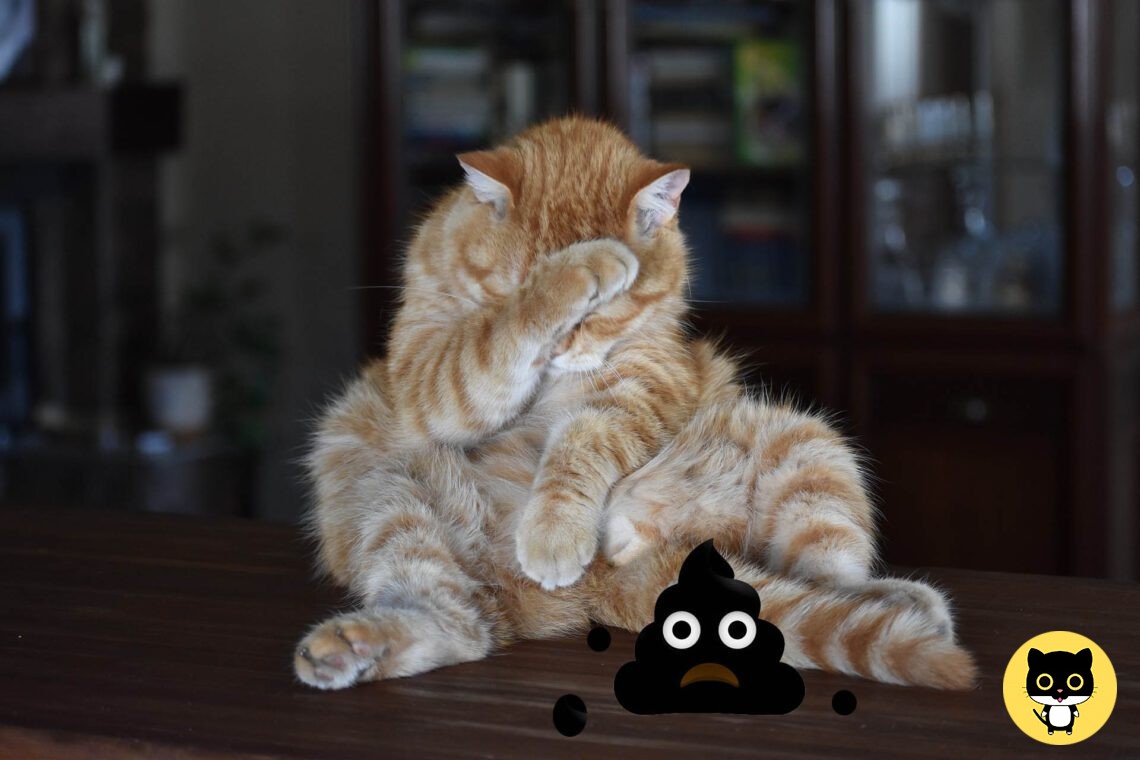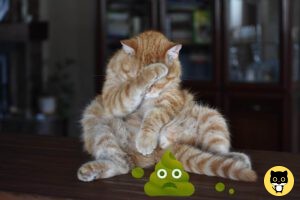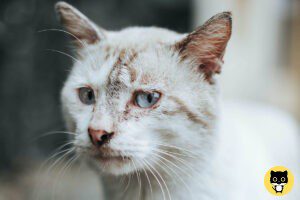When it comes to owning a cat, one of the most important things to be aware of is black cat poop (see cat poop color chart). While it is a common occurrence in cats, it can also be a sign of an underlying health issue. In this article, we will take a closer look at black cat poop, what causes it, the symptoms associated with it, common treatments, preventative measures, how to clean it up, home remedies, potential hazards, and when to contact a veterinarian.
What is Black Cat Poop?
Black cat poop is a type of fecal matter that cats produce on a regular basis. It is usually small, dark colored, and has a strong odor. It can also contain visible pieces of food or other material. It is important to note that this type of poop is not always a sign of a problem and is normal in many cats.
What Causes Black Cat Poop?
Black cat poop can be caused by a variety of factors including diet, digestion, and health issues. Cats that eat a diet high in grains and carbohydrates are more likely to have black cat poop due to their inability to digest these types of foods. It can also be caused by dehydration, parasites, bacterial infections, or a lack of fiber in the diet. The black color can also mean that your cat is bleeding into the gastro-intestinal tract, which in turn can have several explanations, including stress.
Symptoms of Black Cat Poop
The symptoms associated with black cat poop vary depending on the underlying cause. Some associated symptoms include diarrhea, vomiting, weight loss, lack of appetite, or an increase in drinking water. If any of these symptoms are present, it is important to contact a veterinarian as soon as possible.
Common Treatments for Black Cat Poop
The most common treatment for black cat poop is to adjust the diet of the cat to ensure that it is getting the proper nutrition. Adding fiber to the diet can help to prevent the buildup of undigested food in the intestines. If the cat is suffering from dehydration, increasing the water intake can help to alleviate the problem. Anti-parasite medications can be prescribed if parasites are the cause. In some cases, antibiotics may be necessary to treat bacterial infections.
Preventative Measures for Black Cat Poop
There are several preventative measures that can be taken to help prevent black cat poop. The first is to ensure that the cat is getting the proper nutrition. This means feeding the cat a high-quality diet that is rich in proteins and low in carbohydrates. It is also important to make sure that the cat has plenty of fresh, clean water available at all times. Regularly cleaning the litter box can also help to reduce the risk of black cat poop.
How to Clean Up Black Cat Poop
Cleaning up black cat poop can be a challenging task. The first step is to remove any visible pieces of feces from the area. This can be done with a paper towel or cloth. It is important to wear gloves to protect the hands from bacteria and parasites. Once the feces has been removed, the area should be thoroughly cleaned with an antibacterial cleaner.
Home Remedies for Black Cat Poop
There are several home remedies that can be used to help treat black cat poop. Adding fiber to the diet can help to reduce the amount of undigested food in the intestines. Adding probiotics to the diet can help to restore the balance of beneficial bacteria in the intestines. Supplements such as pumpkin or papaya can help to reduce the symptoms of diarrhea.
Potential Hazards of Black Cat Poop
It is important to be aware of the potential hazards of black cat poop. The most common hazard is the presence of parasites, which can be transferred to humans and other animals. Bacterial infections can also be transferred, which can cause serious health issues. It is important to wear gloves when cleaning up any type of cat feces and to wash hands thoroughly after coming into contact with it.
When to Contact a Veterinarian for Black Cat Poop
If the cat is displaying any of the symptoms associated with black cat poop, it is important to contact a veterinarian as soon as possible. This is especially true if the symptoms are severe or if the cat is displaying signs of dehydration. The veterinarian can perform a physical exam and order diagnostic tests to determine the underlying cause. They can also provide advice on diet and lifestyle changes that can help to reduce the risk of black cat poop.
Please register to leave a reply below and to post in the Forums.







One Reply to “Black Cat Poop”